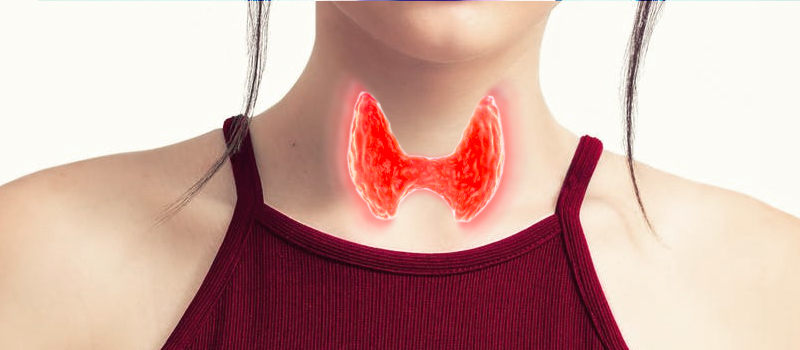13 August, 2019
Thyroiditis: What is it, diagnosis and treatment options

Thyroiditis is a group of thyroid diseases primarily characterised by an inflamed thyroid. This term encompasses a wide range of entities. From rare acute infectious thyroiditis, subacute lymphocytic thyroiditis or drug-induced inflammation, to the more common chronic autoimmune thyroid inflammation or Hashimoto’s thyroiditis.
HASHIMOTO’S THYROIDITIS
When people talk about thyroiditis in general, they are almost always referring to chronic autoimmune thyroid inflammation or Hashimoto’s thyroiditis. This type of thyroid inflammation affects 15% of the population, predominantly women (95%). It is caused by a rise of antibodies (Antimicrosomal Antibodies) that attack and destroy thyroid cells. It is usually diagnosed between the ages of 20 and 50 and has a clear genetic component. For this reason, we can say that it is a hereditary disease (>50% of first-degree relatives suffer from it).
“Hashimoto’s thyroiditis affects 15% of the population, predominantly women (95%), and it is hereditary (>50% of first-degree relatives suffer from it)”
DIAGNOSIS OF HASHIMOTO’S THYROIDITIS
Hashimoto’s thyroiditis is diagnosed by chance in 75% of cases, in a routine laboratory test or cervical examination. However, thyroid inflammation is sometimes diagnosed because the patient exhibits symptoms of hypothyroidism. This is true of the other 25% of autoimmune thyroiditis cases.
When this disease is suspected given an inflamed thyroid, a blood test should be performed to check thyroid hormone function (which is usually normal) plus anti-thyroglobulin and anti-TPO antibodies. Anti-thyroglobulin antibodies are elevated in 60% of patients, while anti-TPO antibodies are high in >95%, which means they could be considered highly specific.
Inflammation of the thyroid, thyroid nodule and multinodular goitre
We can complete a thyroiditis diagnosis with a neck ultrasound. This test will reveal whether the patient also has a multinodular goitre or an abnormality that is concomitant with his/her disease. The ultrasound is usually normal in patients with thyroid inflammation, without the presence of a thyroid nodule. If nodules are present, their nature should be investigated with other tests (thyroid nodule study).
THYROIDITIS TREATMENT
-
Medical treatment of inflamed thyroid symptoms
The treatment of thyroid inflammation is based on symptom control. The symptoms of thyroiditis are attributable to subclinical hypothyroidism. In these cases, or when it is marked (high TSH level and reduced T4), levothyroxine should be administered to normalise the hormones. If there is none of the above, the patient should only be monitored.
-
Thyroiditis surgery
The surgical treatment of an inflamed thyroid is reserved for cases in which there are symptoms caused by compression, large multinodular goitres or the discovery of recent-onset and fast-growing nodules, or nodules suspected to be malignant in the context of the disease. The extent of surgery should be personalised at the physician’s discretion and according to the expectation of the individual patient.
“Thyroiditis surgery is reserved for cases with compression symptoms, large multinodular goitres or thyroid nodules which are fast-growing or suspected to be malignant”






